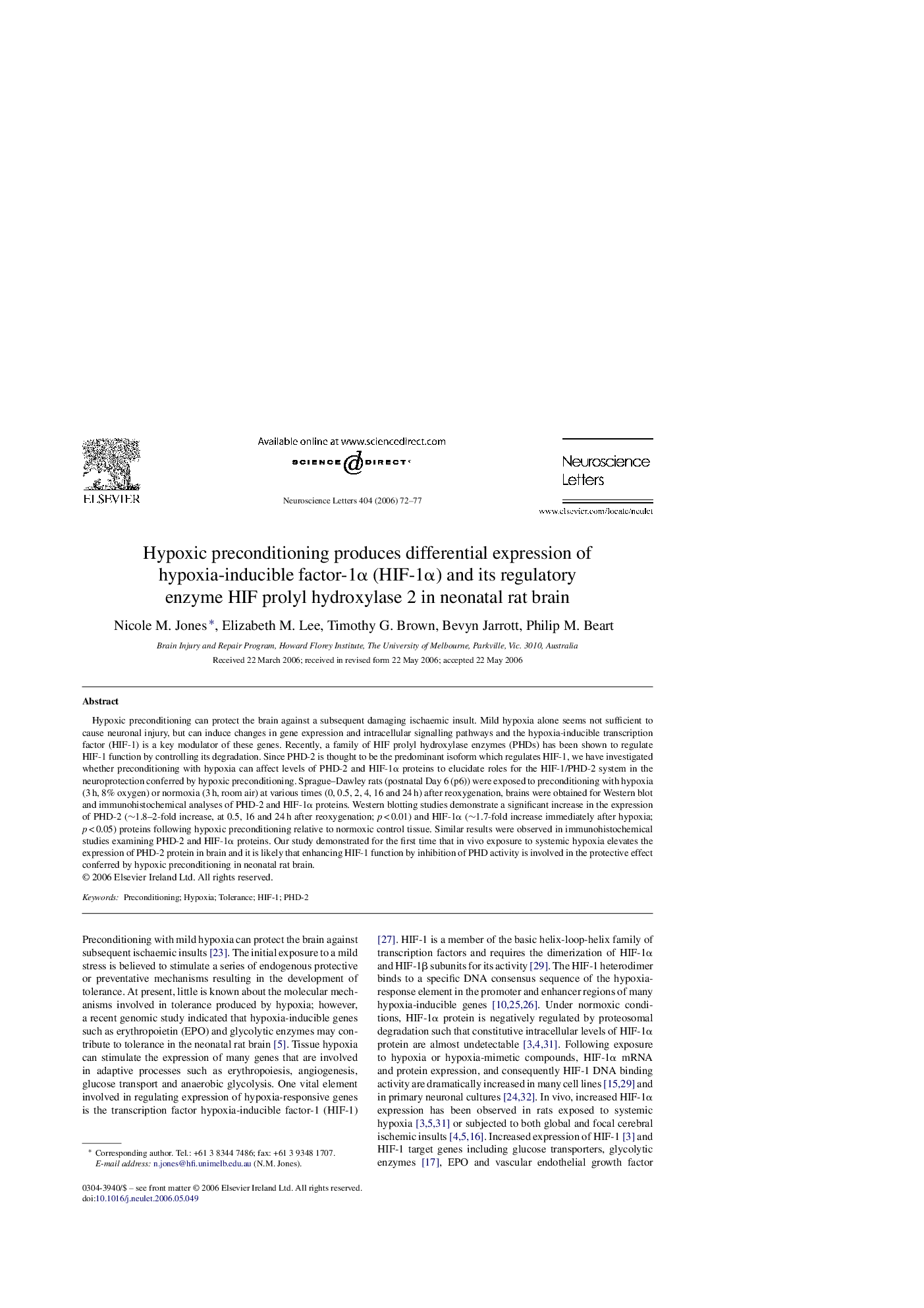| Article ID | Journal | Published Year | Pages | File Type |
|---|---|---|---|---|
| 4350283 | Neuroscience Letters | 2006 | 6 Pages |
Abstract
Hypoxic preconditioning can protect the brain against a subsequent damaging ischaemic insult. Mild hypoxia alone seems not sufficient to cause neuronal injury, but can induce changes in gene expression and intracellular signalling pathways and the hypoxia-inducible transcription factor (HIF-1) is a key modulator of these genes. Recently, a family of HIF prolyl hydroxylase enzymes (PHDs) has been shown to regulate HIF-1 function by controlling its degradation. Since PHD-2 is thought to be the predominant isoform which regulates HIF-1, we have investigated whether preconditioning with hypoxia can affect levels of PHD-2 and HIF-1α proteins to elucidate roles for the HIF-1/PHD-2 system in the neuroprotection conferred by hypoxic preconditioning. Sprague-Dawley rats (postnatal Day 6 (p6)) were exposed to preconditioning with hypoxia (3 h, 8% oxygen) or normoxia (3 h, room air) at various times (0, 0.5, 2, 4, 16 and 24 h) after reoxygenation, brains were obtained for Western blot and immunohistochemical analyses of PHD-2 and HIF-1α proteins. Western blotting studies demonstrate a significant increase in the expression of PHD-2 (â¼1.8-2-fold increase, at 0.5, 16 and 24 h after reoxygenation; p < 0.01) and HIF-1α (â¼1.7-fold increase immediately after hypoxia; p < 0.05) proteins following hypoxic preconditioning relative to normoxic control tissue. Similar results were observed in immunohistochemical studies examining PHD-2 and HIF-1α proteins. Our study demonstrated for the first time that in vivo exposure to systemic hypoxia elevates the expression of PHD-2 protein in brain and it is likely that enhancing HIF-1 function by inhibition of PHD activity is involved in the protective effect conferred by hypoxic preconditioning in neonatal rat brain.
Related Topics
Life Sciences
Neuroscience
Neuroscience (General)
Authors
Nicole M. Jones, Elizabeth M. Lee, Timothy G. Brown, Bevyn Jarrott, Philip M. Beart,
